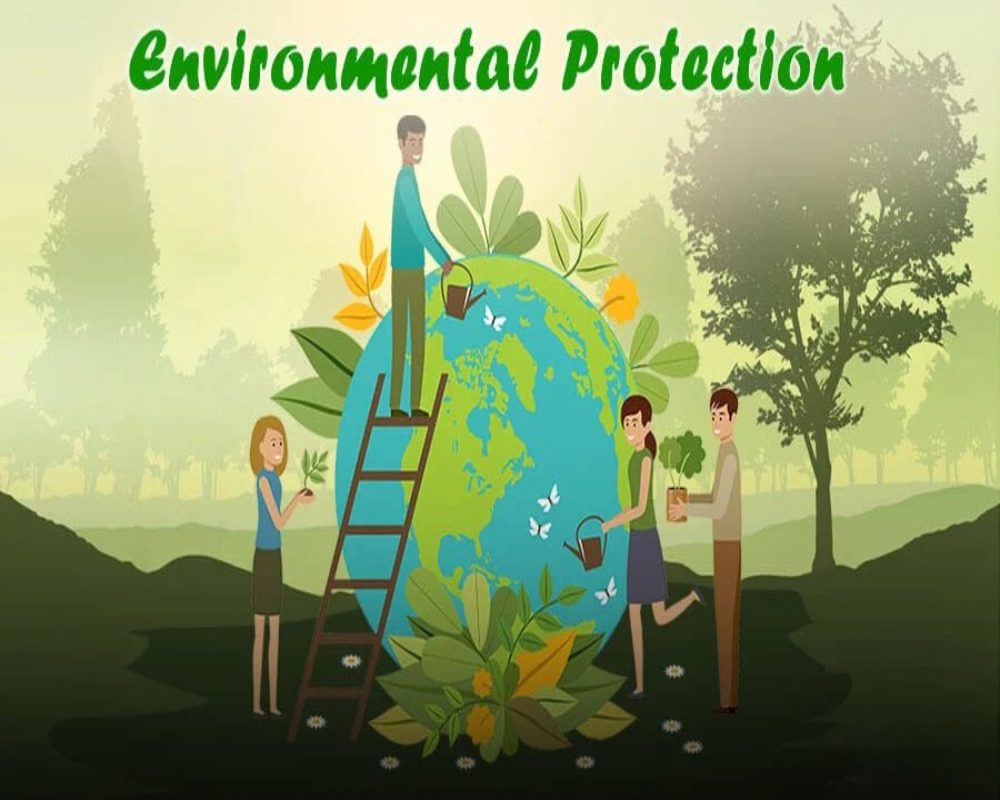Introduction
Industries are a driving force behind economic development, technological progress, and employment generation. However, this progress has often come at a significant environmental cost, including air and water pollution, deforestation, habitat loss, and climate change. As the global community becomes increasingly aware of these challenges, industries are now expected to take active responsibility for protecting the environment. Establishing environmental responsibility within the industrial sector is no longer a matter of social goodwill; it is a strategic imperative, a legal requirement, and a moral obligation. Responsible industries today must integrate sustainability into their core operations and contribute meaningfully to environmental preservation.
Understanding Environmental Responsibility in Industry
Environmental responsibility refers to the obligation of industries to minimize the negative impact of their activities on the natural environment. It encompasses a range of practices aimed at conserving resources, reducing emissions and waste, and preventing pollution. This responsibility is not limited to end-of-pipe solutions but extends throughout the entire lifecycle of a product or service—from sourcing raw materials to production, packaging, distribution, and eventual disposal.
Environmental responsibility is guided by principles of sustainable development, environmental justice, and the polluter pays doctrine. These principles ensure that industrial entities not only compensate for environmental damage but also work proactively to avoid it. Industrial responsibility goes beyond compliance with regulations; it involves adopting voluntary measures, engaging with communities, and setting benchmarks for environmental excellence.
Legal and Regulatory Framework
In most countries, environmental laws and regulations have been enacted to establish clear responsibilities for industries. These laws typically cover aspects such as air and water pollution control, waste management, hazardous substances handling, energy conservation, and environmental impact assessments. Regulatory bodies may require industries to obtain environmental clearances, conduct periodic audits, maintain pollution control equipment, and report compliance data.
Key legal instruments include the Environmental Protection Act, Water and Air Acts, hazardous waste rules, and biodiversity protection regulations. Many industries are also governed by international conventions and environmental protocols, especially those engaged in transboundary trade or operating under global supply chains.
In addition to statutory obligations, there is a growing trend of corporate environmental responsibility, where businesses voluntarily adopt international standards such as ISO 14001 (Environmental Management System), ISO 50001 (Energy Management), and sustainability reporting frameworks like the Global Reporting Initiative (GRI).
Operationalizing Environmental Responsibility
To establish and institutionalize environmental responsibility, industries must embed it in their organizational structure and operational strategies. This begins with a clear environmental policy that reflects the company’s commitment to sustainability and outlines specific goals for compliance, pollution prevention, and performance improvement.
Industries must conduct environmental impact assessments (EIA) for new projects and incorporate mitigation measures into their designs. They should adopt cleaner production technologies and prioritize resource efficiency in terms of energy, water, and raw materials. Emission control systems, waste recycling units, and green supply chain management practices must be integrated into daily operations.
Furthermore, industries should implement monitoring and reporting systems to track environmental performance and address non-compliance swiftly. Investing in employee training, fostering innovation in sustainability, and engaging with external stakeholders—such as local communities, NGOs, and government agencies—are also key to fostering a culture of responsibility.
Corporate Social Responsibility (CSR) and Environmental Stewardship
Environmental protection is a major component of corporate social responsibility (CSR), especially in developing countries where CSR is mandated by law. Many industries now invest in community-based environmental projects such as afforestation, water conservation, clean energy adoption, and environmental education.
Through CSR, industries can align their growth with broader environmental goals, contributing to national and global agendas such as the United Nations Sustainable Development Goals (SDGs), particularly Goal 12 (Responsible Consumption and Production), Goal 13 (Climate Action), and Goal 15 (Life on Land).
Benefits of Environmental Responsibility for Industries
By taking responsibility for the environment, industries gain multiple benefits. First, it enhances regulatory compliance, reducing the risk of penalties, shutdowns, and legal disputes. Second, it improves operational efficiency, as resource optimization often leads to cost savings. Third, it builds a positive corporate image, strengthening brand reputation and customer loyalty.
Environmentally responsible industries are more attractive to investors, especially those with environmental, social, and governance (ESG) mandates. In many cases, environmental responsibility opens doors to green financing, subsidies, and preferential treatment from government agencies.
Moreover, industries that prioritize sustainability are better equipped to manage risks associated with climate change, supply chain disruptions, and environmental activism. By future-proofing their operations, they ensure long-term business resilience and continuity.
Conclusion
Establishing industrial responsibility for environmental protection is a multi-faceted and essential endeavor. It involves legal compliance, operational excellence, stakeholder engagement, and a shift in mindset from exploitation to stewardship. In today’s world, where environmental challenges are interconnected and urgent, industries must evolve from passive users of natural resources to active protectors of the planet. Only by embracing environmental responsibility can industries contribute to sustainable development, earn public trust, and thrive in a rapidly changing global landscape. Through responsible actions, industries hold the power to become part of the solution to the environmental crisis—not just the cause.
Hashtags
#IndustrialResponsibility #EnvironmentalProtection #SustainableIndustry #EcoFriendlyPractices #GreenManufacturing #CorporateResponsibility #SustainabilityMatters #ProtectOurPlanet #EcoConscious #CleanIndustry #ResponsibleBusiness #ClimateAction #ReduceWaste #CircularEconomy #GreenInnovation #EnvironmentalStewardship #SustainableDevelopment #EcoAwareness #FutureOfIndustry #ProtectNature


